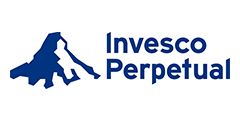


Sponsor introducing: Andrew Downing and Venu Reddy, Invesco Perpetual
Facilitator: Caroline Burkart, Scorpio Partnership
Key message
The Middle Eastern wealth management industry continues to grow and evolve as regulators struggle to keep pace with the level of funds flowing into GCC countries.
Local wealth managers still need to better understand the requirements of different client segments and build more strategic relationships with family offices.
Headlines
The UAE’s reputation as a financial centre continues to grow in tandem with sustained levels of private capital inflow.
- Regulation is an evolving process and remains a key concern for wealth managers and local investors alike.
- Wealth managers still need to respond better in areas such as trust and estate planning which are increasingly important for the first generation wealthy.
Key themes
The session revolved around key findings from the sixth Invesco Middle East Asset Management Study which provided insight across five themes:
Sovereigns and institutional investors
- Private capital flow
- GCC family offices and international private banks
- Expat length of stay and retirement trends
- Retail wealth market evolution
The continued high levels of capital inflow into the UAE and the lure of Dubai as an emerging financial centre were the main areas of discussion. Attendees attributed the UAE’s appeal to its reputation as a politically stable country and a hub for investors from the broader Middle East and African countries. However, Dubai remains “more a through-route than financial destination” in the sense that funds are brought onshore and then domiciled offshore again.
Regulation was a hot topic of debate as regulators struggle to keep pace with onshore flows. The term “evolving process” was used to describe regulation in the UAE with the DIFC increasingly seen as a sounding board for the needs of the industry. Prudential regulation was identified as becoming more prevalent and tighter in private banks with clients frequently asked questions such as “How did your grandfather make his first million?” as banks seek to establish KYC and AML criteria. Nonetheless, attendees pointed to instances of local retail distributors having to pay several thousand dollars to the DIFC in order to register funds for sale as an example of overzealous regulation.
The issue of client needs frequently arose during the session as firms still need to adapt more to meet the requirements of different segments. Private banks have an opportunity to develop better relationships with family offices as they continue to underperform in areas such as custodial and estate planning.
Interestingly, expats were reported as staying in the region for increasingly longer periods which implies a higher need for wealth planning as clients typically seek 10-15 year saving plans.
Another key issue for regional wealth managers is the ongoing need to diversify client portfolios away from mutual funds and life wrappers. IFAs are still allocating around 90% of assets into the life space. As a result, approximately 40% of international life funds in the Channel Islands originate from ME investors. Most attendees agreed that improving local regulation would be the easiest way to overcome this problem and make the sale of alternative products more profitable. On this topic, it was noted that asset management and banking associations were being set up to help further integrate regulation into the marketplace.
The round table also acknowledged the increasing trend of wealth managers looking to attract top talent to the region. Family offices and other wealth managers have recruited former fund advisors from around the world to offer more sophisticated solutions to local investors.
In terms of strategic challenges, the prospect of a prolonged period of low oil prices is a major concern for sovereign investors. Sovereigns are experiencing a significant outflow of funds due to the declining oil price, which could present potential liquidity problems in the future. Elsewhere, it was found that clients expect to have increasing levels of control over their investments although it was unclear how the market will evolve over the near term.
Final discussions centred on the continued gulf between return expectations of Middle Eastern investors and returns that can realistically be offered by wealth managers. Most attendees were of the opinion that although expectations of local investors have been slightly tempered, they do remain high. However, some attendees did note that high return expectations could be met on occasion by use of high leverage of fixed income products.
Conclusions
The UAE continues to grow in stature as a regional hub for investors as regulation improves but not at the same pace as capital inflow.
- Wealth managers face an ongoing challenge to meet the evolving needs of local investors and to offer alternatives to the conventional mutual fund and life wrapper products.
- A lack of solutions in estate and succession planning are key issues to address in light of the growing demand from first generation wealthy clients.

